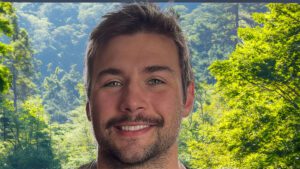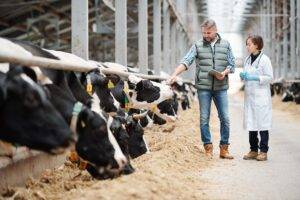Noah Spielman is a leader in sports performance and football strength coaching. He grew up in Columbus, Ohio, where his love for football and fitness began.
He played college football at Toledo and Wheaton College. He later earned his master’s degree from Northern Arizona University.
Today, Noah works as the Associate Director of Football Sports Performance at Ohio University. He helps football players get stronger, faster, and healthier. His job is to design training plans and guide athletes through workouts. He also mentors younger coaches and staff.
Noah’s career includes many respected roles. He worked as a scouting intern for the Minnesota Vikings. He also coached at the Speed and Strength Society. He served as a strength intern with the United States Air Force Academy Football programme. He also worked as a graduate assistant for strength and conditioning at Northern Arizona University.
Outside of work, Noah enjoys outdoor activities like skiing, hiking, and hunting. He loves singing and playing the guitar, and spending time with his family.
He is passionate about giving back. He supports charities such as Young Life, 4Paws, and the Stefanie Spielman Breast Cancer Research Fund.
Noah is known for his strong work ethic, his passion for football, and his positive energy. He believes in helping others grow both on and off the field. He has built a career based on hard work, faith, and dedication to his craft.
In Conversation with Noah Spielman: Building Strength, Character and Careers in Football
In this exclusive interview, we sit down with Noah Spielman, Associate Director of Football Sports Performance at Ohio University. From his early days growing up in Columbus, Ohio, to his current leadership role, Noah shares lessons from the field, the weight room, and beyond. He walks us through his journey from college football to working with professional athletes, and reflects on what it takes to succeed in sports performance today.
Q: You’ve worked with both college and professional athletes. How did your time with the Minnesota Vikings impact you?
Working with the Minnesota Vikings as a scouting intern was eye-opening. It was my first direct exposure to the NFL environment, where everything is about precision and performance at the highest level.
I wasn’t just observing—I was part of the process, evaluating players and learning what separates good from great. It helped me see how data, scouting, and training all connect to create winning teams.
Q: Your work has taken you through many different places and roles. What has stayed consistent throughout your career?
The biggest thing is relationships. Whether it’s at Northern Arizona, the Vikings, or Ohio University, it’s always about the people. Athletes trust you when they know you care about their well-being and their goals—not just their stats.
Another constant is the commitment to learning. In this industry, you can’t afford to get comfortable. I’m always reading, attending workshops, or connecting with others in the field to stay sharp.
Q: Outside of work, you seem to have quite a few hobbies. How do they influence your coaching?
I love being outdoors—skiing, hiking, hunting, and spending time with my family. I also enjoy playing guitar and singing. Those hobbies keep me balanced. They remind me that life isn’t just about football or work.
I often tell athletes that who they are outside of sport matters too. Having passions beyond the field can make you a more well-rounded person and, surprisingly, a better athlete.
Q: You’ve also been involved in philanthropy. Why is that important to you?
Giving back has always been part of my life. I’ve worked with groups like Young Life, 4Paws, and the Stefanie Spielman Breast Cancer Research Fund, which honors my mom’s legacy.
I believe we’re called to use our time and gifts to serve others. Whether it’s through charity or simply mentoring young athletes, I want to leave a positive impact.
Q: Finally, what advice would you offer to someone looking to follow a similar career path?
Be patient and stay committed. This career isn’t about shortcuts—it’s about building trust, gaining experience, and continuing to grow. Start wherever you can—internships, grad assistant roles, even volunteering.
Focus on relationships. Learn to listen more than you speak. And always stay humble enough to learn from others, no matter how far you go.






